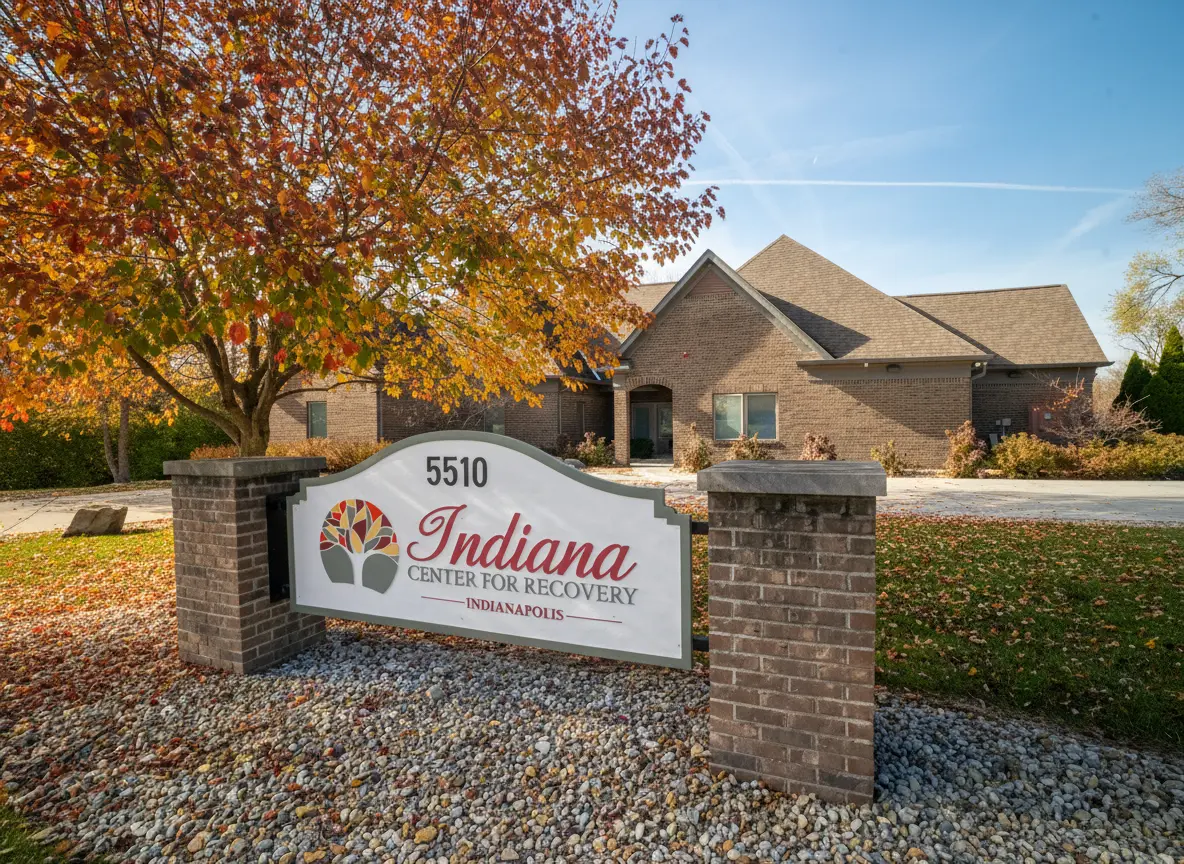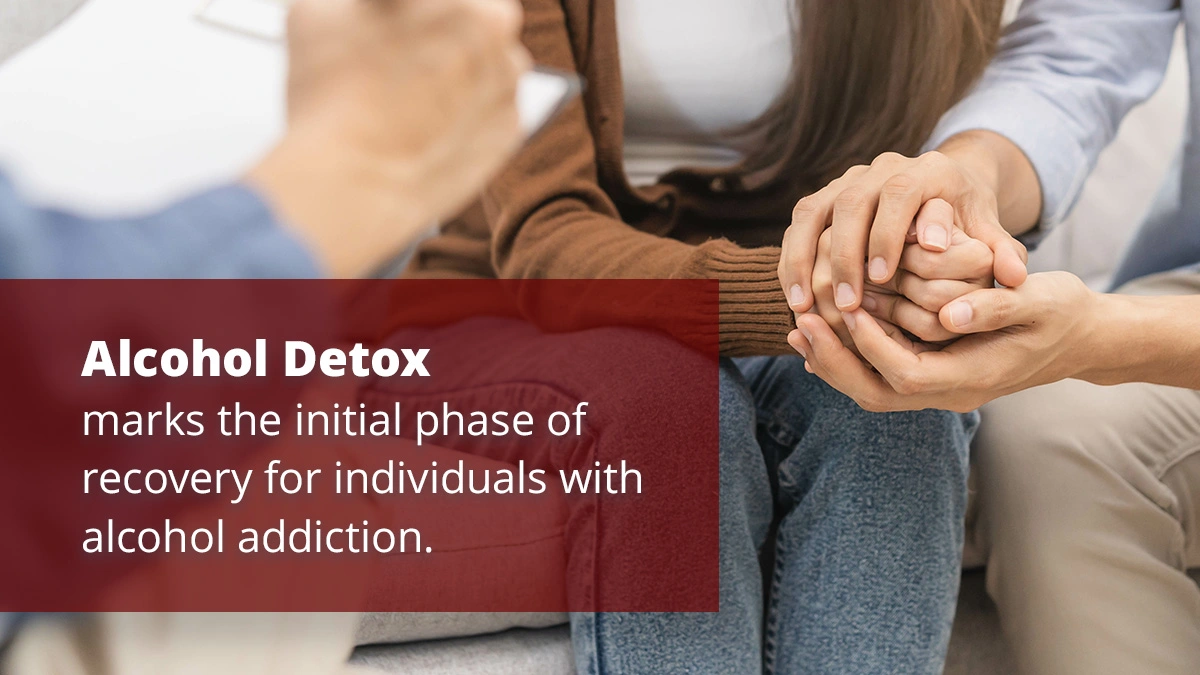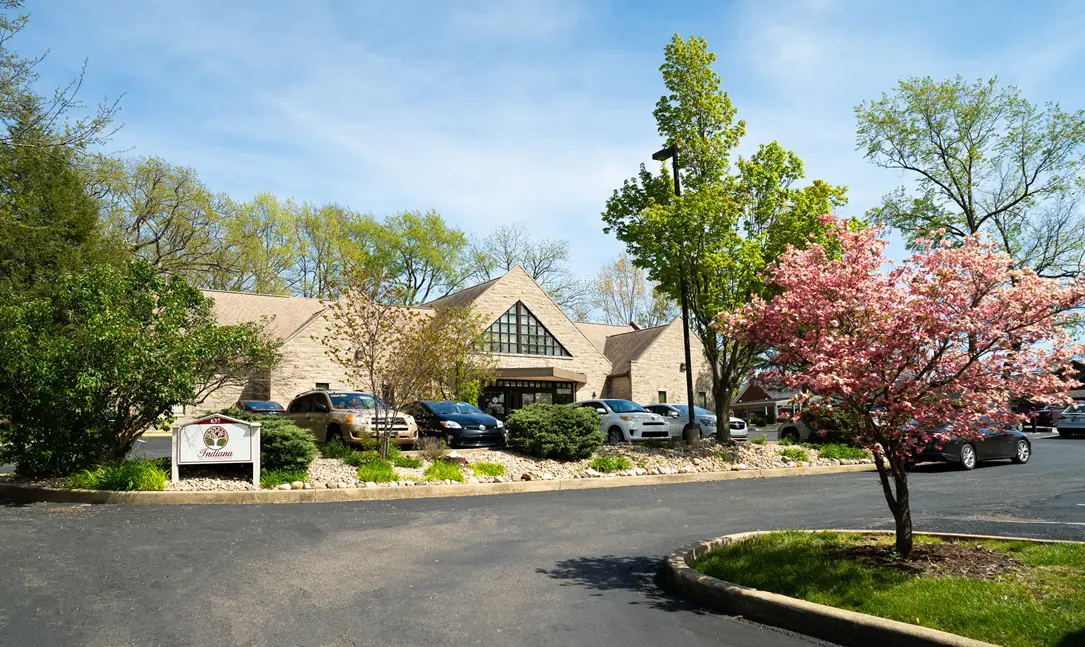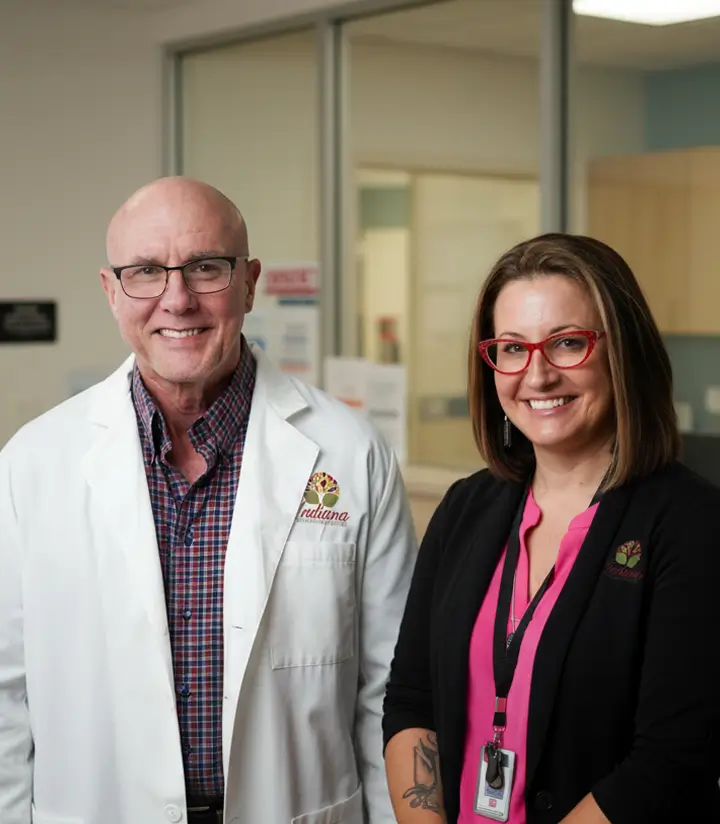
What Is Alcohol Detox?
The appeal of alcohol is undeniable. Its ability to momentarily dissolve inhibitions, ease social tensions, and temporarily distract from life’s burdens can intoxicate in more ways than one. However, what begins as a casual indulgence or a coping mechanism can quickly spiral into a dependency that undermines physical health and mental well-being.
Alcohol detoxification, also known as detox, is the first step on the journey toward sobriety and healing. It’s a process that not only rids the body of toxic substances but also lays the foundation for a successful recovery. At Indiana Center for Recovery, we understand the complexities of alcohol addiction and the courage it takes to confront it head-on. With a team of compassionate professionals dedicated to guiding you through every step of the journey, we are committed to providing the highest level of comfort and support.
Understanding Alcohol Detox
Alcohol detox marks the initial phase of recovery for individuals with alcohol addiction. This process aims to safely manage physical and psychological symptoms that arise when someone suddenly stops or reduces alcohol consumption.
Chronic alcohol consumption leads to neuroadaptations, where the brain adjusts to the presence of alcohol by increasing excitatory neurotransmitter activity and dampening inhibitory signals. When alcohol intake is abruptly discontinued, these adaptations are uncovered, resulting in a variety of withdrawal symptoms as the brain struggles to regain equilibrium.
Because of the uncomfortable withdrawal symptoms that come with detoxing from alcohol, it is best to detox in a professional treatment center with medical supervision. Professionals at the facility will work to reduce withdrawal symptoms, provide support, and ensure the safety of you or a loved one. Additionally, medical staff in these programs may administer medications to alleviate symptoms and reduce the risk of complications, such as benzodiazepines to prevent seizures or antipsychotics to manage hallucinations.
Beyond the medical management of withdrawal symptoms, detox programs also offer psychosocial support to address the emotional and psychological aspects of recovery. Counseling sessions and support groups may be incorporated to help individuals cope with cravings, identify triggers for relapse, and develop coping strategies for managing stress and negative emotions.
Withdrawal Symptoms
The onset and severity of alcohol withdrawal symptoms can vary widely depending on factors such as the individual’s level of alcohol dependence, co-occurring medical conditions, and previous experiences with withdrawal.
Below are common withdrawal symptoms experienced during alcohol detox:
- Tremors
- Sweating
- Insomnia
- Increased anxiety
- Headaches
- Elevated blood pressure
- Hallucinations
- Seizures
- Delirium tremens (DTs)
Importance Of Alcohol Detox In Recovery
One of the main goals of alcohol detox is to ensure the safety and well-being of individuals experiencing withdrawal symptoms. Withdrawal from alcohol can be unpredictable and, in some cases, life-threatening, particularly for those with a history of heavy or prolonged alcohol use. By addressing withdrawal symptoms promptly and effectively, detox programs facilitate a smoother transition into recovery, minimizing discomfort and distress along the way.
Once stabilized, individuals may transition to residential or outpatient rehabilitation programs, where they can participate in individual and group therapy, learn coping skills, and develop relapse prevention strategies. In essence, alcohol detoxification serves as a critical gateway to recovery, offering safety, comfort, stabilization, and hope to individuals embarking on the path toward sobriety.

Stages Of Alcohol Detox
Throughout the different stages of alcohol detox, your healthcare team will closely monitor your progress and address any additional health issues to ensure you’re on track towards achieving a fulfilling, sober life. The onset of alcohol withdrawal symptoms can occur as soon as two hours after your last drink, signifying that some of the most challenging moments lie ahead.
However, your dedicated team begins working diligently to create optimal conditions for your recovery. Your care team stands by your side through constant monitoring, attentive listening, appropriate medication management, and unwavering support, offering encouragement and comfort throughout the hours, days, or weeks ahead.
Six To 12 Hours
Between six to 12 hours after initiating alcohol detox, patients may begin to experience a progression of withdrawal symptoms as their bodies adjust to the absence of alcohol. Symptoms at this time can include increased anxiety, tremors, insomnia, increased heart rate, sweating, mood swings, and cravings. These symptoms can vary in severity depending on factors such as the individual’s level of alcohol dependence, overall health, and previous experiences with withdrawal.
One To Three Days
During the first one to three days of alcohol detox, individuals may continue to experience a range of withdrawal symptoms as their bodies undergo significant adjustments in the absence of alcohol. Symptoms during this stage may include hallucinations and seizures.
Three Days And Beyond
Beyond the initial three days of alcohol detox, individuals may continue to experience a range of physical, emotional, and psychological symptoms as their bodies gradually adjust to the absence of alcohol. While the intensity of withdrawal symptoms typically begins to diminish after the first few days, some symptoms may persist or evolve. Symptoms like tremors, sweating, nausea, etc. tend to subside within the first week. While the physical symptoms of withdrawal may improve, individuals may continue to experience psychological symptoms such as anxiety, depression, mood swings, and cravings for alcohol for another few weeks.
Medication Assisted Treatment
During alcohol detox, professionals at the facility may prescribe patients with medications that help alleviate withdrawal symptoms. A trained professional should administer each medication outlined below within a supervised setting to minimize potential side effects and risks associated with detoxification.
Naltrexone
Naltrexone, a medication approved by the US Food and Drug Administration (FDA) for the treatment of alcohol use disorder (AUD), is a key component of medication-assisted treatment for alcohol detoxification. Unlike some other medications used in alcohol detox, naltrexone does not directly reduce withdrawal symptoms. Instead, it works by blocking the euphoric effects of alcohol, thereby reducing cravings and the desire to drink.
Acamprosate
Acamprosate is another FDA-approved medication for the treatment of alcohol dependence. This medication works by stabilizing the balance of neurotransmitters in the brain, which may be disrupted by chronic alcohol use, which helps reduce alcohol cravings and withdrawal symptoms, making it easier for individuals to abstain from alcohol during detoxification and beyond.
Disulfiram
Disulfiram, commonly known by the brand name Antabuse, works by causing unpleasant physical reactions when alcohol is consumed, acting as a deterrent to drinking.
What’s Next After Alcohol Detox?
After completing alcohol detox, individuals are encouraged to transition into ongoing treatment and support services to address the underlying issues driving their addiction and build the skills necessary for long-term recovery. These programs may include residential or outpatient rehabilitation, individual and group therapy, counseling, and behavioral interventions aimed at addressing the psychological, social, and environmental factors contributing to addiction.
During ongoing treatment, individuals work with counselors and addiction specialists to identify triggers for relapse, develop coping strategies, and create a personalized relapse prevention plan to navigate high-risk situations and maintain sobriety long after treatment. Mutual support groups such as Alcoholics Anonymous (AA) and SMART Recovery can provide valuable peer support and accountability for individuals in recovery.
Alcohol Detox Starts the Road to Recovery
Detox marks the critical first step when alcohol has taken control—Indiana Center for Recovery provides medically supervised alcohol detox to manage withdrawal safely and stabilize mind and body before you step into the next phase of care; our tailored alcohol addiction treatment builds coping tools, and immersive inpatient alcohol rehab offers 24/7 structure while outpatient alcohol treatment keeps you supported as you transition back home, with integrated dual diagnosis treatment addressing any co-occurring mental health concerns.
Help is available at our alcohol treatment centers across Indiana; take the first step toward shielding your health—call (844) 650-0064 today to explore a detox plan that prepares you for lasting recovery.



 100% Confidential
100% Confidential
